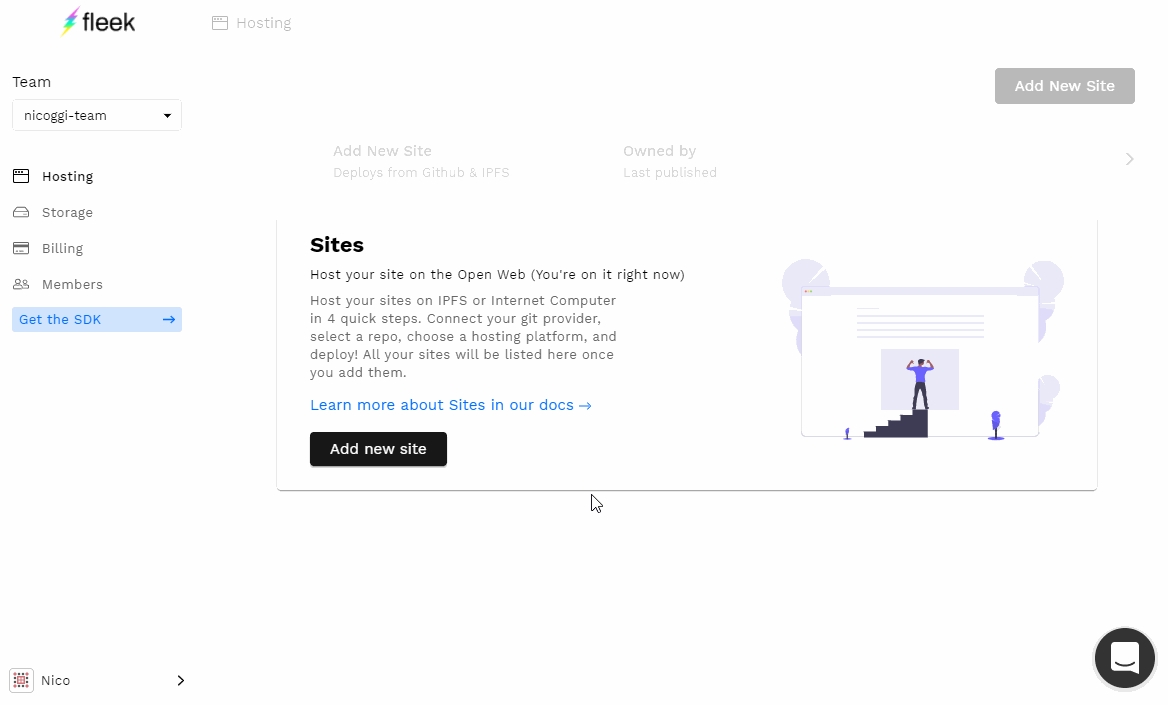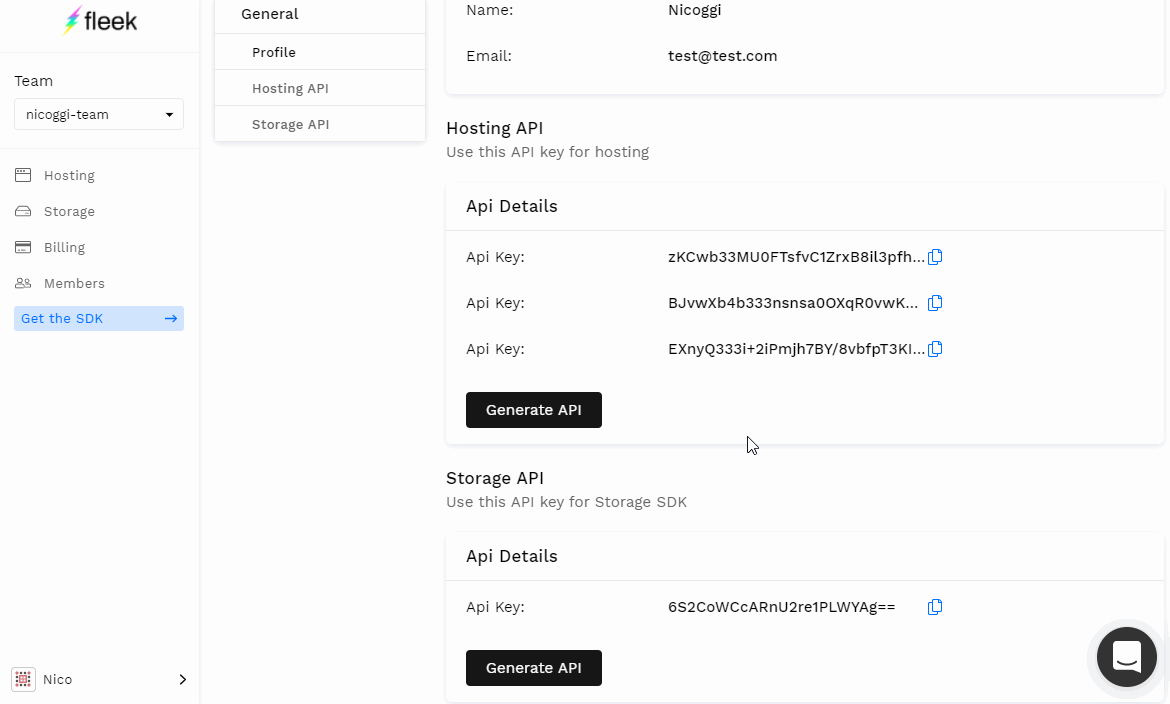Overview

The Fleek API is a simple GraphQL API that exposes Hosting functionalities to manage sites in the Fleek platform, fetch data from them, or trigger new deployments.
The API is accessible at https://api.fleek.co/graphql and requires an API Key to authenticate yourself. Right now you can use the API's schema to navigate and learn all available queries and mutations, we will expose a GraphQL playground in the near future as an alternative to this.
GraphQL Schema
View All Queries and Mutations
API Keys
Generating an API Key
Authentication
Authenticating Against the API
Query Examples
Fetch Data, Trigger Deploys
Hosting API Keys¶
To authenticate the API, you need to generate an API Key for your team by going to the settings screen of the corresponding team.
Generate a Sites API Key by going to your Fleek account, and visit the settings menu where you will find the Hosting Api Key Generator.

Here you will find the Hosting API Key generator, which you can use to create several different Hosting keys for your different projects or implementations. Generate a new one, and save it for the next step.

Authentication¶
To authenticate against the API, pass your API Key as the Authorization header to the request, this will be use to authenticate the request against the team the key was generated for.
Example curl request can be authenticated like so:
curl -H "Authorization: <fleek-api-key===>" \
-H "Content-Type: application/json" \
-d '{"query": "{ __typename }"}}' \
https://api.fleek.co/graphql
Most GraphQL client libraries have some way to add headers to all your requests. Here's a JavaScript example with Apollo Boost.
import ApolloClient from 'apollo-boost';
const fleekApiKey = process.env.FLEEK_API_KEY;
const client = new ApolloClient({
uri: 'https://api.fleek.co/graphql',
fetch: fetch,
headers: {
authorization: fleekApiKey
}
});
Query Examples and Uses Cases for the API¶
1. Fetching Details About a Site and its Published Deployment¶
The following snippet is an example query to get details about the published deployment for a site on Fleek.
query {
getSiteBySlug(slug: "site-name-here") {
id
name
platform
publishedDeploy {
id
status
ipfsHash
log
completedAt
}
team {
id
name
}
}
}
2. Triggering a New Deployment on Existing Site¶
To trigger a new deployment on an existing site:
mutation {
triggerDeploy(siteId: "site-id", commit: "") {
id
status
}
}
NOTE: siteId is different from site name/slug, you can get the id from the [Site.id](http://site.id) field of the Site type. Also, the commit input is not required, omitting it would deploy the latest commit on the configured sites repository branch.
You can can then query the status of the latest deployment using the following query:
query {
getSiteById(siteId: "site-id") {
id
latestDeploy {
id
status
}
}
}
Note: Currently to actively monitor the status of a deploy you would have to either manually watch it in the Fleek Dashboard or poll one of the deploy queries to know when there is a status update. We will be releasing a webhooks solution later to make updates easier to monitor.